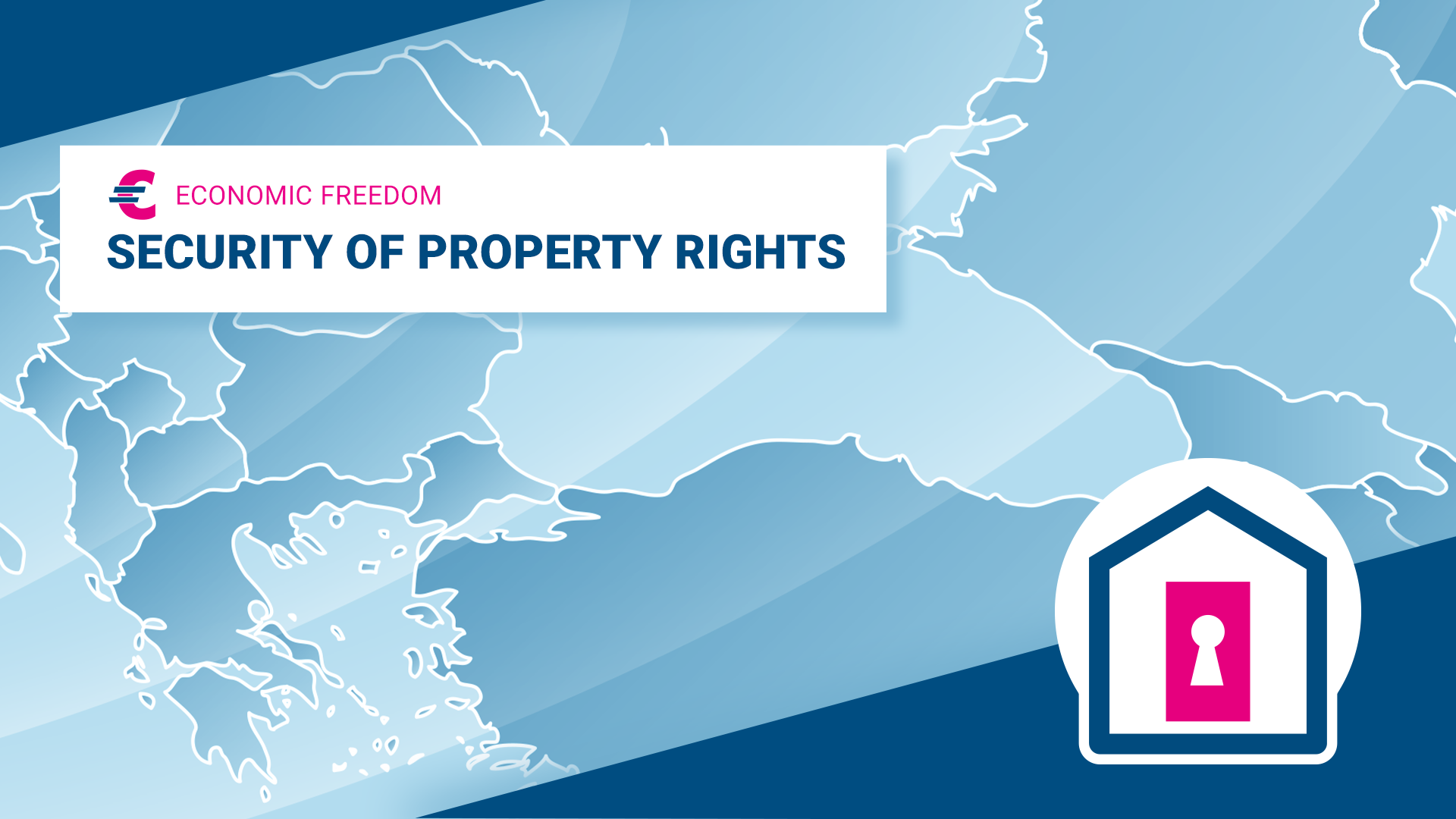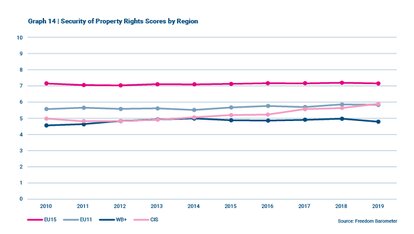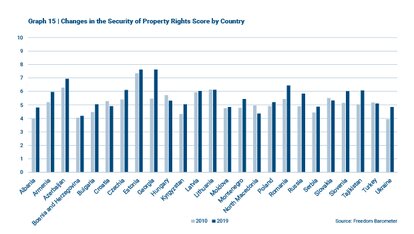Freedom Trends
Security of Property Rights: 10 Years Freedom Barometer

Security of Property Rights
©Well defined and secured private property rights are the foundation stones of a civilized society. They allow for peaceful cooperation and exchange, creating a business environment that is conducive to investment, innovation and growth. Uncertainty arising from the lack of security of property rights or its lax enforcement pushes entrepreneurs to look for other, more informal ways of securing their property, contributing to widespread clientele networks in which politicians in power protect property rights only for those entrepreneurs that engage with them in exchange for pecuniary and political support. Insecure property rights thus are a trait of an unconsolidated democratic or autocratic regime.
WELL DEFINED PROPERTY RIGHTS ARE THE FOUNDATION STONES OF A CIVILIZED SOCIETY.
There is a clear regional difference in the security of property rights across Europe. On one hand, private property is more secure in the advanced European countries grouped in EU15, while the Western Balkan countries lie on the other end of the distribution, with CIS and EU11 countries somewhere in between. However, we need to take the value of this indicator with a grain of salt, since some sources (most prominently the World Bank and its Doing Business Report) focus more on the text of the law and not on its practical implementation, whether that is genuine and to what an extent. There is nothing easier than introducing a new law without actually implementing it.

Security of Property Rights Scores by Region
The level of property rights security is bound by other important systemic traits of society at question: the nature of its political system and its balance of political power. In countries where there are effective controls on the executive power, property rights are more secure and vice versa. Therefore, the overall level of property rights protection relies on an intricate interplay between political and societal stakeholders and its sustained improvement can only be possible with a change in these underlying conditions.
PROTECTION OF PROPERTY RIGHTS RELIES ON AN INTRICATE INTERPLAY BETWEEN MANY STAKEHOLDERS IN SOCIETY.
It is not surprising, then, that there are few significant changes over time. The most important improvements have been recorded in Georgia, followed by Romania, Slovenia, Tajikistan, and Russia. The stellar performance of Georgia is due to the significant rise in values of the Judicial Independence and Protection of Property Rights indicators by the Global Economic Forum. The same could be said for Romania. At the same time, most of the score increase in Slovenia is attributed to the reduction in the time necessary to register a purchase of real property. Only in Tajikistan was there an increase across the whole set of indicators. There was also a broad increase across many indicators in Russia, but with a worsening performance in the legal enforcement of contracts.
There are many different forms by which the insecurity of property rights is exposed. One is by direct political control over court decisions, followed by somewhat clear court preference towards state owned companies or big corporations with political backing; it can be more subtle when courts are overwhelmed by the sheer number of backlogged cases so that their procedures become exhaustingly long. Corruption always remains an issue, including in state institutions such as the land registry, but new technologies and the dissemination of notary services have limited its scope.
There are opportunities but also threats regarding the security of property rights in countries at hand, which differ from region to region, or country to country. The process of EU integration can prove to be an important catalyst for improvements in the Western Balkans if it continues, since it would support institutional development and a deconcentration of political power. In Ukraine, deep political changes provided a window of opportunity for bold reforms (including the recent land market development), but the rest remains at crossroads.

Changes in the Security of Property Rights Score by Country
THE LOOMING POPULIST THREAT COULD UNDERMINE PRIVATE PROPERTY RIGHTS THROUGH DISMANTLING OR WEAKENING THE EXISTING INSTITUTIONAL CHECKS AND BALANCES.
At the same time, the populist threat that is looming in several CEE and WB countries can undo many improvements by dismantling institutional checks and balances that have not yet passed the test of time. The non-oil CIS countries need to acknowledge the fact that there is no sustainable economic growth without private property rights. But their introduction would create social groups not dependent on the state and thus enable their existence outside of the operating clientele network, which could challenge the established political order. This interplay between different groups that govern or want to govern power structures will determine the outcome of property rights in each country.
-
Download the full report